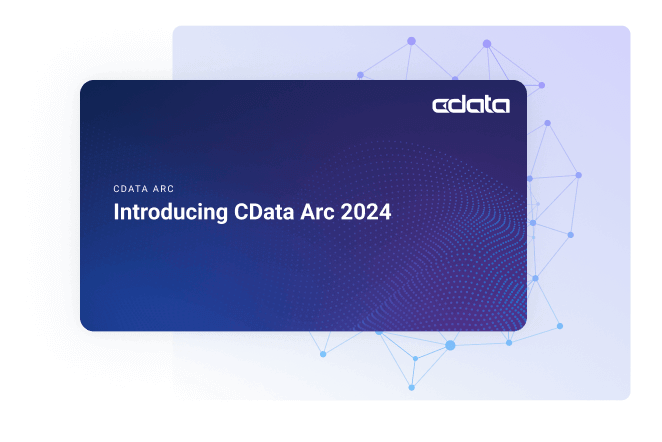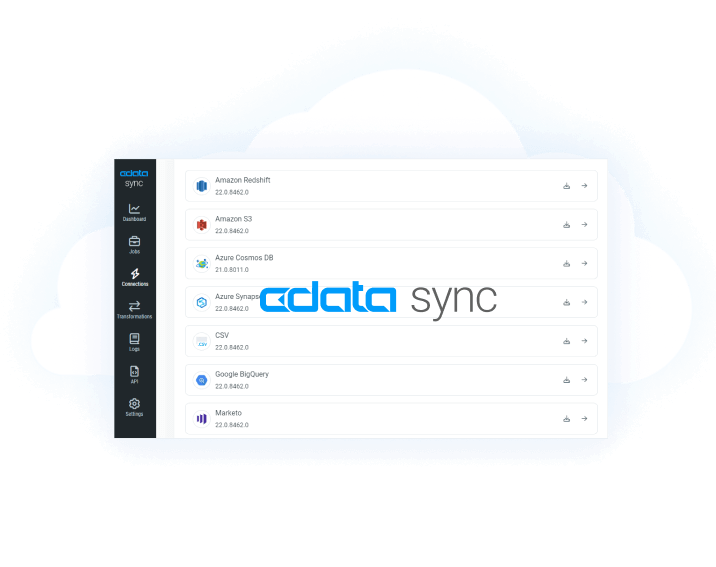Discover how a bimodal integration strategy can address the major data management challenges facing your organization today.
Get the Report →Natively Connect to Google Campaign Manager Data in PHP
The CData ODBC driver for Google Campaign Manager enables you to create PHP applications with connectivity to Google Campaign Manager data. Leverage the native support for ODBC in PHP.
Drop the CData ODBC Driver for Google Campaign Manager into your LAMP or WAMP stack to build Google Campaign Manager-connected Web applications. This article shows how to use PHP's ODBC built-in functions to connect to Google Campaign Manager data, execute queries, and output the results.
Configure a DSN
If you have not already, first specify connection properties in an ODBC DSN (data source name). This is the last step of the driver installation. You can use the Microsoft ODBC Data Source Administrator to create and configure ODBC DSNs.
Google Campaign Manager uses the OAuth authentication standard. The data provider facilitates OAuth in various ways as described below. The following OAuth flow requires the authenticating user to interact with DoubleClick Campaign Manager, using the browser. You can also use a service account to authenticate.
For authentication guides, see the Getting Started section of the data provider help documentation.
Establish a Connection
Open the connection to Google Campaign Manager by calling the odbc_connect or odbc_pconnect methods. To close connections, use odbc_close or odbc_close_all.
$conn = odbc_connect("CData ODBC GoogleCM Source","user","password");
Connections opened with odbc_connect are closed when the script ends. Connections opened with the odbc_pconnect method are still open after the script ends. This enables other scripts to share that connection when they connect with the same credentials. By sharing connections among your scripts, you can save system resources, and queries execute faster.
$conn = odbc_pconnect("CData ODBC GoogleCM Source","user","password");
...
odbc_close($conn); //persistent connection must be closed explicitly
Create Prepared Statements
Create prepared statements and parameterized queries with the odbc_prepare function.
$query = odbc_prepare($conn, "SELECT * FROM CampaignPerformance WHERE Device = ?");
Execute Queries
Execute prepared statements with odbc_execute.
$conn = odbc_connect("CData ODBC GoogleCM Source","user","password");
$query = odbc_prepare($conn, "SELECT * FROM CampaignPerformance WHERE Device = ?");
$success = odbc_execute($query, array('Mobile devices with full browsers'));
Execute nonparameterized queries with odbc_exec.
$conn = odbc_connect("CData ODBC GoogleCM Source","user","password");
$query = odbc_exec($conn, "SELECT Clicks, Device FROM CampaignPerformance");
Process Results
Access a row in the result set as an array with the odbc_fetch_array function.
$conn = odbc_connect("CData ODBC Google Campaign Manager data Source","user","password");
$query = odbc_exec($conn, "SELECT Clicks, Device FROM CampaignPerformance");
while($row = odbc_fetch_array($query)){
echo $row["Clicks"] . "\n";
}
Display the result set in an HTML table with the odbc_result_all function.
$conn = odbc_connect("CData ODBC Google Campaign Manager data Source","user","password");
$query = odbc_prepare($conn, "SELECT * FROM CampaignPerformance WHERE Device = ?");
$success = odbc_execute($query, array('Mobile devices with full browsers'));
if($success)
odbc_result_all($query);
More Example Queries
You will find complete information on the driver's supported SQL in the help documentation. The code examples above are Google Campaign Manager-specific adaptations of the PHP community documentation for all ODBC functions.






